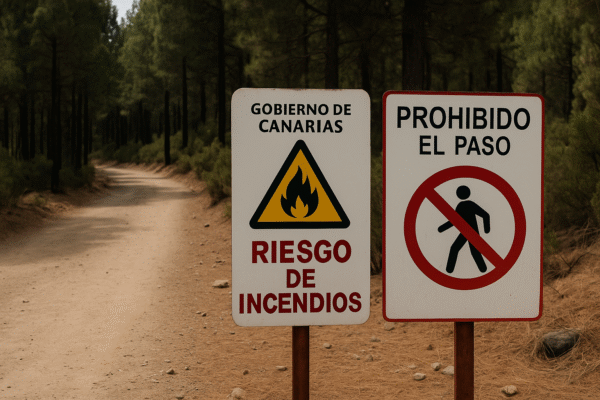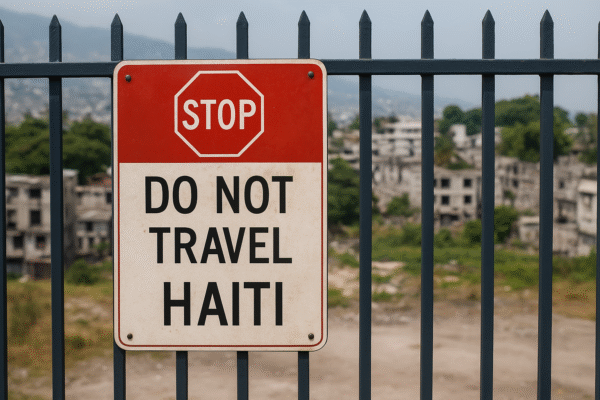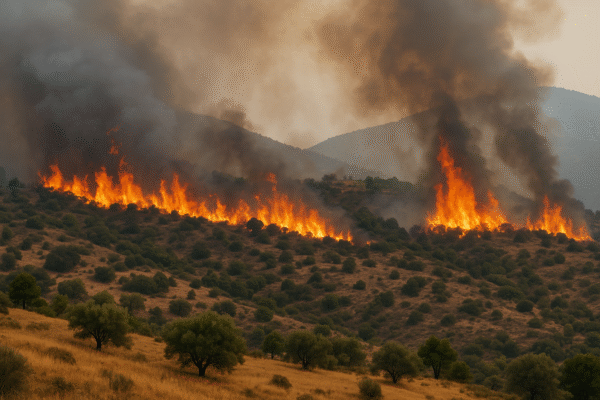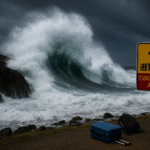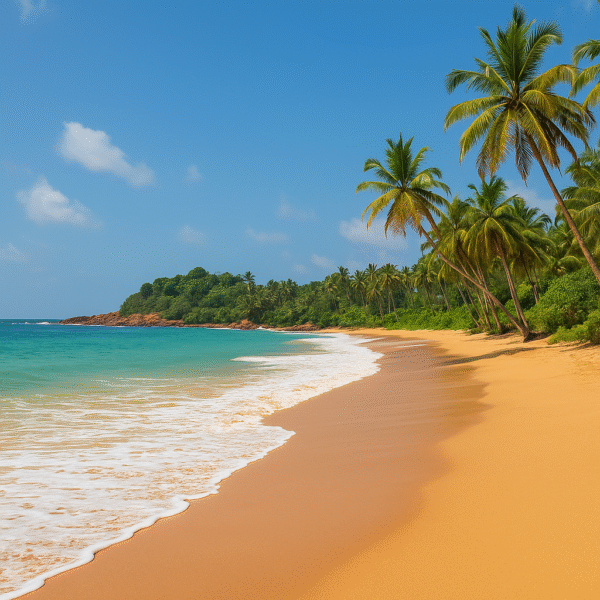The Canary Islands, a renowned Spanish archipelago off the northwest coast of Africa, have issued an urgent wildfire warning for the 2025 summer season. The government of the Canary Islands, in coordination with the Spanish Meteorological Agency (AEMET), has activated emergency measures across Tenerife, Gran Canaria, La Palma, El Hierro, and La Gomera due to extreme heat and dangerously dry conditions.
Temperatures are expected to soar between 32°C and 37°C this week, creating perfect conditions for wildfires to ignite and spread rapidly. As the region faces elevated fire risk, both tourists and residents are urged to comply with newly enforced restrictions designed to prevent potential disasters.
Fire Prevention Measures Now Enforced in High-Risk Zones
In response to this growing threat, the Canary Islands’ Directorate General of Emergencies has declared a full wildfire alert, specifically targeting areas above 400 meters in elevation where vegetation is most vulnerable.
Authorities have implemented strict prohibitions on the following:
- Open flames and barbecues: All recreational fires, including campfires and BBQs, are strictly banned in rural and forested areas.
- Use of gas stoves and fire pits: Even portable cooking devices are prohibited in non-urban zones.
- Smoking in natural areas: Smoking is forbidden along trails, at campsites, and in all mountainous regions to avoid accidental ignition.
- Fireworks and pyrotechnics: Celebratory fire-related activities are completely prohibited, particularly during local festivals.
- Spark-producing equipment: Chainsaws, welding tools, and grass trimmers are not permitted in high-risk areas.
Moreover, locals and visitors are strongly discouraged from entering forested zones during the alert to ensure public safety and allow emergency crews unimpeded access.
Tenerife, Gran Canaria, and La Palma Under Maximum Surveillance
Tenerife, the most populated island, is currently under maximum wildfire surveillance following an earlier blaze in 2023 that devastated over 14,000 hectares. The island has since ramped up fire prevention infrastructure and continues to monitor forested zones using satellite thermal imaging and aerial drone patrols.
Gran Canaria has also recorded spikes in temperature nearing 37°C, further exacerbating wildfire concerns. El Hierro, La Palma, and La Gomera — all known for their lush volcanic landscapes — are equally at risk due to persistent drought conditions and strong seasonal winds.
UK and International Travel Advisories Issued
The UK Foreign, Commonwealth & Development Office (FCDO) has released an updated travel advisory for British tourists visiting Spain and the Canary Islands. It warns travelers to exercise extreme caution when visiting wooded or mountainous areas, highlighting that individuals can face criminal prosecution for unintentionally starting a wildfire.
The FCDO recommends:
- Extinguishing cigarettes completely and responsibly
- Avoiding the use of glass bottles in nature areas, as they can magnify heat
- Reporting fires immediately to Spain’s emergency services.
Travelers are advised to remain informed and review real-time updates through local authorities, tourism offices, and platforms like AEMET (Agencia Estatal de Meteorología.
How Tourists Can Stay Safe and Informed
To ensure a safe holiday during wildfire season, follow these essential tips:
- Stay updated through AEMET alerts and regional government announcements.
- Adjust travel plans to avoid forested regions or elevated mountain zones.
- Keep hydrated and indoors during peak heat hours (12:00 PM to 5:00 PM).
- Pack responsibly, bringing reusable water bottles and hats for sun protection.
- Follow local guidance, especially from hotel staff, tour operators, and signage posted in natural parks.
Hotels and tour companies across the Canary Islands are proactively sharing alerts with guests and modifying excursions to prioritize safety. Some hiking trails, such as those in Teide National Park and Garajonay National Park, may be closed temporarily depending on daily risk levels.
Firefighting and Emergency Response Preparedness
Emergency teams across the islands have increased patrols and are on standby with aerial support units. Local fire departments have coordinated with Spain’s Civil Protection agency to mobilize resources such as water-carrying helicopters and rapid response brigades, ensuring swift reaction to any reported flames.
Spain’s Ministry for the Ecological Transition has also emphasized that the summer of 2025 may be one of the driest on record, calling for heightened environmental vigilance.
Enjoy the Canary Islands Responsibly This Summer
Despite the challenges, the Canary Islands remain a spectacular destination for summer holidays — with safe beaches, lively cultural festivals, and historic towns like La Orotava and San Cristóbal de La Laguna still welcoming visitors.
By respecting fire safety measures and staying informed, travelers can enjoy their vacation while contributing to the protection of the islands’ fragile ecosystems. Wildfire prevention is a collective effort — and everyone’s responsibility.
For more travel news like this, keep reading Global Travel Wire




